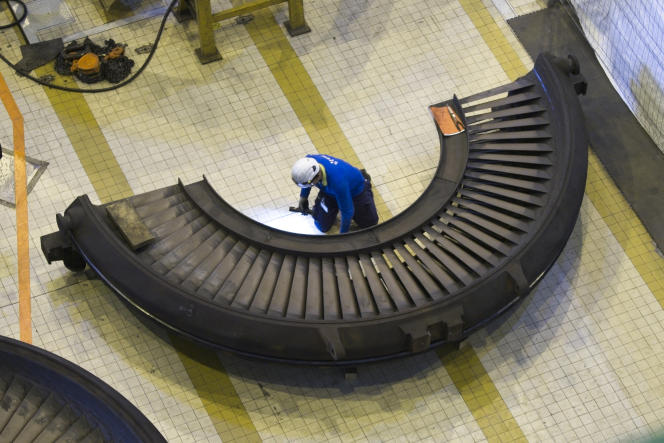On the long road to reindustrialisation, France comes up against a major obstacle: the lack of manpower. Recruitment difficulties still penalize more than three out of four companies, according to the latest VSE/SME barometer carried out by the Rexecode institute published in May 2023. The problem is particularly acute in industry.
However, the training courses for industrial trades, ranging from CAP to bac + 2, have enough students to meet the needs of companies, explain Guillaume Basset and Olivier Lluansi, former delegates for the Territories of industry, in a note published in July 2023 by the Fabrique de l’industrie.
“In fact, the tensions at the time of recruitment are largely explained by a high rate of evaporation of young people trained in industrial trades”, they explain. In other words, a number of young people, at the end of their training, will ultimately not enter the labor market, or else they will take up jobs other than those for which they were trained.
By default
According to the counts made by the two experts, it is one in two young people who change lanes once their CAP or professional baccalaureate is in their pocket. The schools thus train approximately 125,000 young people each year in metallurgy, chemistry and other industrial trades − for needs estimated at between 80,000 and 90,000 vacancies per year. But only 65,000 actually fit into a trade corresponding to their training.
How to explain this massive “evaporation”? First explanation, some of these young people have been oriented towards industry jobs by default, without any real motivation. Then, young people are trained in specialties disconnected from their employment area, and are therefore required to be geographically mobile to find a job or to have to change industry or sector.
“After forty years of deindustrialization, the number of training centers has dropped”, note in particular the two authors of the note. As a result, the distance between establishments, young people and companies able to recruit them has continued to increase. Philippe Lescarret, headmaster of the Albert-Camus school complex in Mourenx (Pyrénées-Atlantiques), which has a vocational high school and training courses in the chemical and safety professions and is close to Lacq and its chemical companies, confirms this verdict.
“Inconceivable”
“Young people are not very mobile, but in the Pyrénées-Atlantiques, they are not mobile at all. They were born here, their families are here and they want to stay here. Going to work in Pau, 20 kilometers away, is already complicated, so Bordeaux is unthinkable. » Conversely, bringing young people from the Landes, a neighboring department, to the training centers of Mourenx is just as complicated, assures Mr. Lescarret.
You have 25.12% of this article left to read. The following is for subscribers only.
